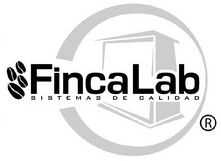KIRKLAND, WA, US – Supported by a Volunteers for Economic Growth Alliance (VEGA) program and USAID’s Farmer to Farmer program, a group of volunteers led by Myriam Kaplan-Pasternak of Haiti Coffee in Nicasio, CA, introduced coffee quality management techniques to Haitian coffee producers in Haiti this June.
Volunteers Gwen Straley, 3rd Creek Consulting, Mery Santos, International Women in Coffee Alliance (IWCA) vice president, James Kosalos, president of San Cristobal Coffee Importers, and Christophe Nicaise, Singing Roster Coffee Roasters, brought a great breadth of skills and experience to a program that is built on over three years of collaborative development between Haiti Coffee and Makouti Agro Entreprise, a Haitian diversified agriculture business and marketing cooperative established in 2004 by Benito Migny Jasmin.
This year there were three days of trainings and workshops at the Makouti Training Center in Cap Hatian, where 30 leaders from 12 different cooperatives participated in interactive educational briefings and workshops in organizational systems, marketing, sales, and harvesting quality coffee, among others.
The group grew to 51 producers for two more days of sensory skills testing and trainings in FincaLab® coffee sample evaluation techniques in Dondon, Haiti.
This second part of the program was dedicated to acquainting the producers with their own personal sensory skills and the steps used in formal evaluation of coffee samples. FincaLab® procedures were introduced to encourage the producers to know their product and its value in order to sell it into the most appropriate market.
Good product knowledge is also the basis for continuous improvement, a conservative and sustainable path to increased income.
Five samples of known quality coffee in parchment and dried fruit form were prepared, graded and roasted by the participants using FincaLab tools. Coffee quality varied from “world class” to “reject” to clearly demonstrate the necessity of formal cupping.
Kosalos commented, “Perhaps most gratifying of the entire program were the immediate and very positive response to Mery’s presentation about the IWCA, and the great appreciation expressed by all participants for the lessons regarding the evaluation of coffee samples; both of these were completely outside of their experience”.
More collaborative conferences and workshops are in the planning stages to help rebuild the Haitian coffee industry to global standards.


















